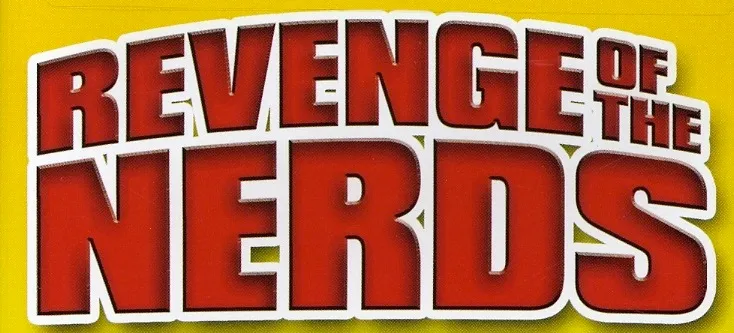With all the “fake geek girl” controversy spreading throughout the Internet, there’s been a lot of discussion about what it really means to be a geek or a nerd and how geekdom and nerddom relates—or should relate—to the mainstream.
And now campaigners in Sweden have gotten into the fracas, petitioning the Swedish Academy to change the official definition of the word “nerd” so that it no longer has a derogatory connotation.
The current definition put forward by the Swedish Academy’s official dictionary is “a simple-minded and laughable person.” It seems fairly straightforward to me that it should be changed, not only because it’s insulting but also because it doesn’t even really reflect what “nerd” means. C’mon, Swedish Academy. When the OED lists a “nerd” as “a foolish or contemptible person who lacks social skills or is boringly studious,” sure, it’s unfairly derogatory, but at least it’s going in the right direction with “studious.” Putting aside all issues of connotation for a moment, “simple-minded and foolish” isn’t even accurate. My inner word nerd is gritting her teeth right now.
(A quick disclaimer: The OED offers a second definition: “a single-minded expert in a particular technical field.” So at least that’s somewhat nerd-positive. Or nerd-neutral, anyway. Maybe.)
In response to this campaign, Kathryn Westcott of BBC News Magazine has written an interesting article on how the words “nerd” and “geek” have largely lost their negative connotations (pimply-faced basement dweller, no social skills, etc. etc.) in recent years, at least outside of dictionaries. Westcott quotes Neil Gaiman as saying that the effort to reclaim the word “nerd” as something positive is a “battle that got won,” and she cites some of the mainstream actors (Natalie Portman, Helena Bonham Carter) and fictional characters (Spaced‘s Tim Bisley, Skyfall‘s Q) that present geekdom in a good light. Furthermore, she says,
Even sportsmen unabashedly refer to themselves as “nerds”. Chris Kluwe of the Minnesota Vikings, who has just been voted “sexiest man of the year“, said of the honour: “It’s a little weird because I’m a nerd video game player.”
To some, Westcott explains, this opening up of nerd culture is a negative. She quotes a Redditor as saying “In my mind, a nerd is someone who is passionate about (and very good at) something – be it math, Irish literature, D&D, botany, whatever. Somewhere along the line, this changed to being part of a certain culture, watching this TV show and wearing that type of clothing. And that’s such a different concept. Many think it devalues the word.”
I think there’s truth to that statement, but though I’d agree with the “different” part, I wouldn’t say that evolution of what it means to be a nerd is bad. So someone wants to wear a Batman t-shirt without having extensive knowledge of the comics. So what? What’s wrong with liking something? It doesn’t make anyone else any less able to express their nerddom in whatever way they see fit.
Westcott references the gender aspect to this debate only briefly (“The addition of women into what was traditionally a male-orientated and male-dominated sub-culture has been a significant development, says [American Nerd: The Story of My People author Benjamin] Nugent.”), but if you’ve any interest in the recent backlash against nerd and geek women, the whole article is a good read for the historical context it provides.
Obviously this is a big issue with a lot of controversial elements. But one thing is simple. Swedish Academy, change that definition. “A simple-minded and laughable person” just won’t fly anymore.
Are you following The Mary Sue on Twitter, Facebook, Tumblr, Pinterest, & Google +?







